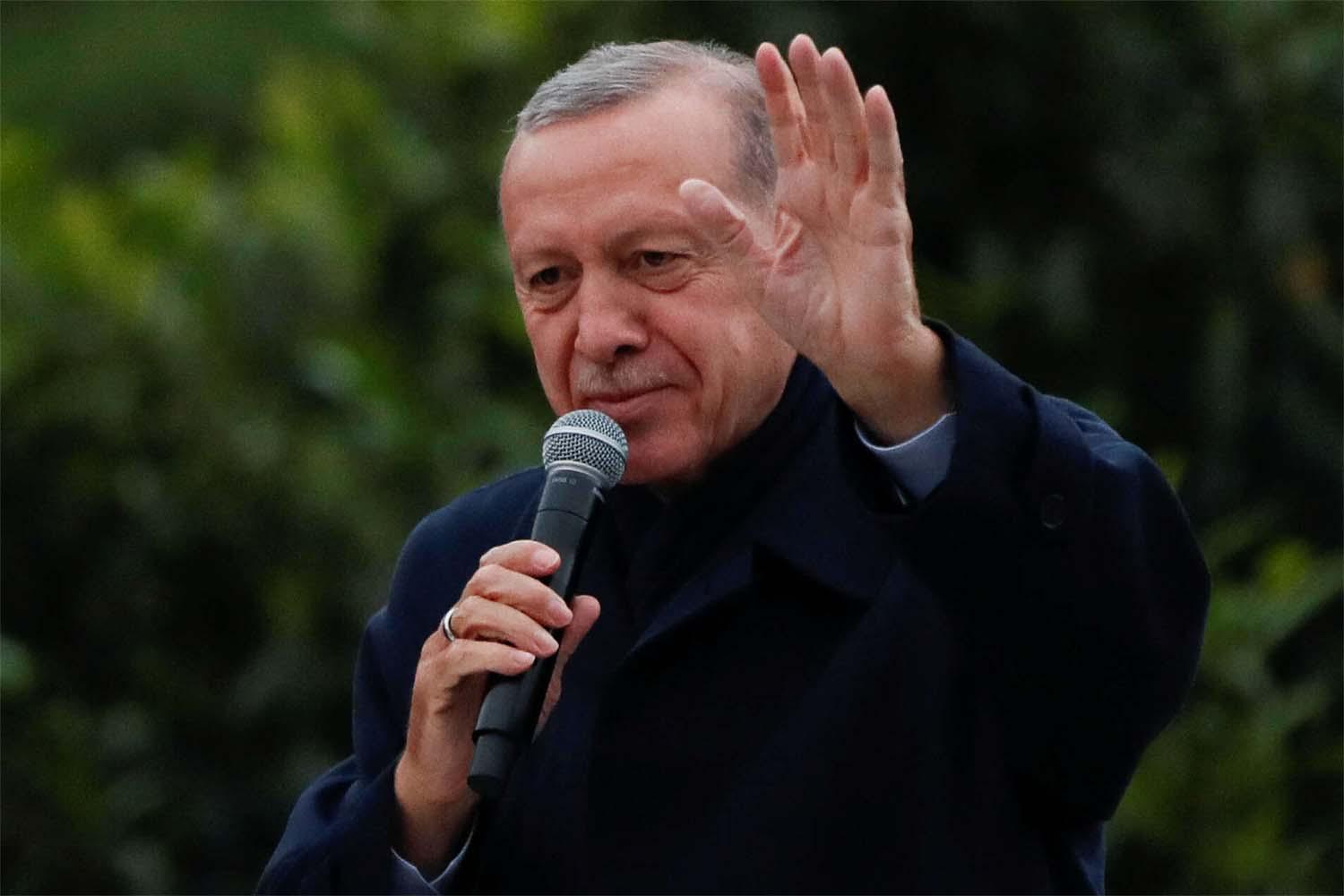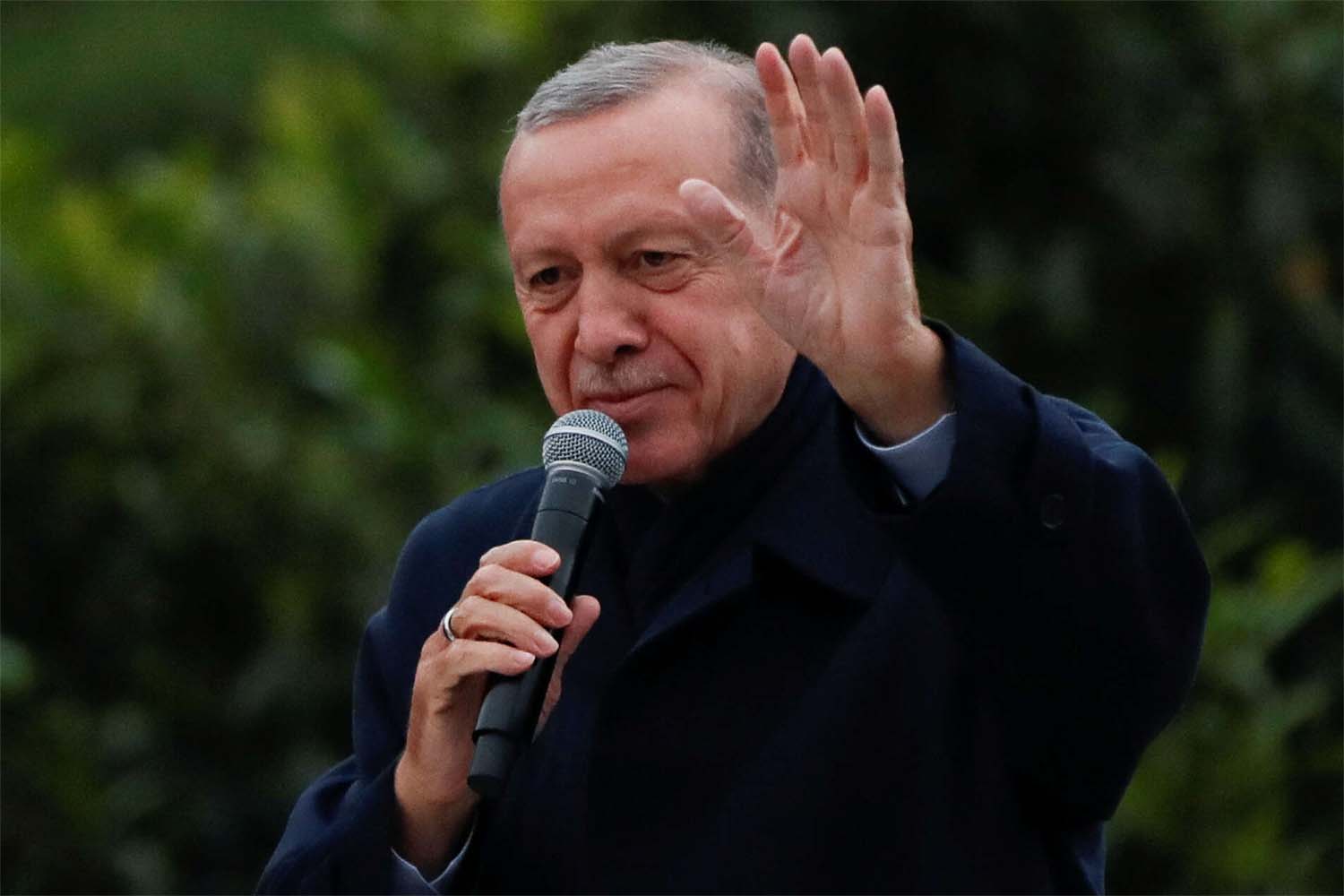Telling insights into the Turkish elections
The Turkish elections carry significant weight in both regional and international contexts. The upcoming second round, scheduled for the 28th of this month, is highly anticipated and holds unique importance. It will witness a face-off between Recep Tayyip Erdogan, the incumbent president and candidate from the Justice and Development Party, and his primary rival Kemal Kilicdaroglu, the leader of the Republican People’s Party.
During the initial round, Erdogan secured 49 percent of the votes, while Kilicdaroglu garnered 30 percent. Receiving a mere 5% of the votes, Kilicdaroglu’s main competitor, Erdogan, managed to secure 44%.
President Erdogan is now faced with a daunting challenge in the second round, particularly due to the narrow margin in the first round (with a difference of three million votes) and the strong likelihood of a considerable number of supporters from the third candidate, Sinan Ogan, who obtained 5% of the votes, still aligning themselves with the opposition candidate, despite him endorsing Erdogan. This segment strongly resonates with the stringent stance, especially concerning the Syrian refugee issue.
As per data, President Erdogan’s appeal has not waned, at least among his loyal followers who previously cast their votes for him in the 2018 elections. During that electoral period, Erdogan amassed roughly 26.3 million votes, accounting for approximately 52% of the total. However, in the initial round of the 2023 elections, he secured approximately 27.09 million votes, representing a mere 49%. The votes acquired by Erdogan amount to 51%, signifying that he requires nearly half of the votes to advance in this round.
These signals imply that Erdogan may have failed to secure a majority of votes from newly registered voters who participated in the electoral process for the first time, making up around 8% of the total electorate. Opinion polls have already highlighted substantial variability in their candidate preferences.
On the other hand, Erdogan could have experienced a significant drop in his support base from past elections due to natural factors like mortality or non-natural factors such as shifting viewpoints and ideologies. These circumstances have influenced the extent of his backing.
However, one cannot disregard the fact that sustaining such a level of popularity amidst the tremendous strain caused by economic woes and skyrocketing inflation, which has soared to a staggering 45%, alongside the aftermath of the catastrophic earthquakes that occurred just a few months prior to the elections, stands as a remarkable political triumph for President Erdogan. Many anticipated his downfall in the face of a candidate emerging from an unparalleled alliance within the Turkish opposition.
From a statistical standpoint, it would be premature to deem Erdogan’s triumph in the second round as a foregone conclusion, and it proves challenging to anticipate a replication of the voting margin witnessed in the initial round for several reasons. One main factor is the presence of around 5% of the votes that are anticipated to be divided between the candidates or allocated to a single contender.
Nevertheless, it is probable that a majority of these votes will tilt in favor of Kilicdaroglu, influenced by the inclinations of the supporters of the third candidate who withdrew from the race, unless there is an unexpected boycott by these supporters, which appears unlikely.
In contrast, we observe that the voter turnout for the opposition presumably reached its zenith during the initial round of elections. The ruling coalition spearheaded by Erdogan, emerging victorious in the parliamentary elections, is projected to possess a significantly greater capacity to rally the remaining fraction of voters in contrast to the opposition. This rings particularly true given that the opposition parties failed to secure a parliamentary majority, and their mutually agreed candidate did not progress beyond the initial round.
This disillusionment has sparked discontentment among numerous of their backers, especially those yearning for a shift towards a parliamentary system, a pursuit rendered unattainable even if Erdogan falters in the second round. The configuration of the upcoming parliament still favors the People’s Alliance.
Conversely, we observe a surge in fervor among the proponents of the Justice and Development Party, spearheading the People’s Alliance that secured a parliamentary majority in the recent elections. The alliance’s triumph in the parliamentary polls will inspire its supporters to rally together and elevate voter engagement in the second round, or, at the very least, safeguard the preservation of equivalent percentages, considering the anticipation of decreased participation from opposition voters.
A crucial gauge for assessing the Turkish public sentiment trends can be gleaned from the outcomes of the parliamentary elections. The Justice and Development Party (AKP) continues to command the utmost voting percentages nationwide, securing 268 parliamentary seats out of a total of 600 seats. It is trailed by the Republican People’s Party (CHP) with a substantial lead of 169 seats. Thus, in parliamentary terms, Turkey still considerably tilts in favor of the AKP.
Nevertheless, this does not negate the decrease in the appeal of the Islamic-leaning party by a minimum of 7% in contrast to the preceding elections. We must bear in mind that these outcomes contradict the anticipations of observers who conjectured a decline in both the President’s and his party’s popularity following the catastrophic earthquakes.
On the flip side, there exist significant pointers favoring Erdogan, such as his narrow triumph in Istanbul by a mere 2%, signifying a moderate change in the inclinations of the city’s residents. Furthermore, he secured a victory with the bulk of votes in regions impacted by the February 6th earthquake, like Kahramanmaras (with 71-88%). This occurs despite the criticisms aimed at his government regarding their handling of the event.
Based on evidence and surveillance reports, the supporters of President Erdogan perceive his accomplishments as a remarkable win that must be sustained through prevailing in the second round. A feeling of contentment arises from what has been achieved in the initial round, taking into account the unparalleled solidarity of the opposition, the political landscape, and the economic circumstances enveloping the elections.
Conversely, reports indicate a sense of disillusionment among opposition circles, who had readied themselves for their candidate’s triumph in the initial round. They had exerted their utmost efforts in mobilization, and the inability to secure victory in the parliamentary elections might dampen their enthusiasm.
Unless these ramifications are tackled, particularly with regards to the dispute surrounding the opposition’s selection of candidate, Kemal Kilicdaroglu, it will prove arduous for the opposition alliance to uphold the same level of potency in the second round.
The primary obstacle for the contenders in the second round of the Turkish presidential elections continues to be their capability to rally voters and encourage them to cast their ballots.
In any event, Turkey will persistently encounter profound political division amidst advocates of the secular and nationalist stance, alongside proponents of the predominantly conservative traditionalist movement rooted in religion.
Furthermore, there will ensue another political skirmish regarding the authority if the opposition candidate emerges victorious, as the Justice and Development Party will contend with the wide-ranging powers bestowed upon the president by Erdogan in the existing constitution.
Salem AlKetbi, UAE political analyst and former Federal National Council candidate







